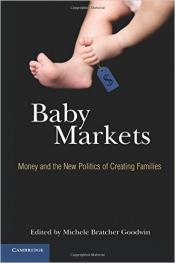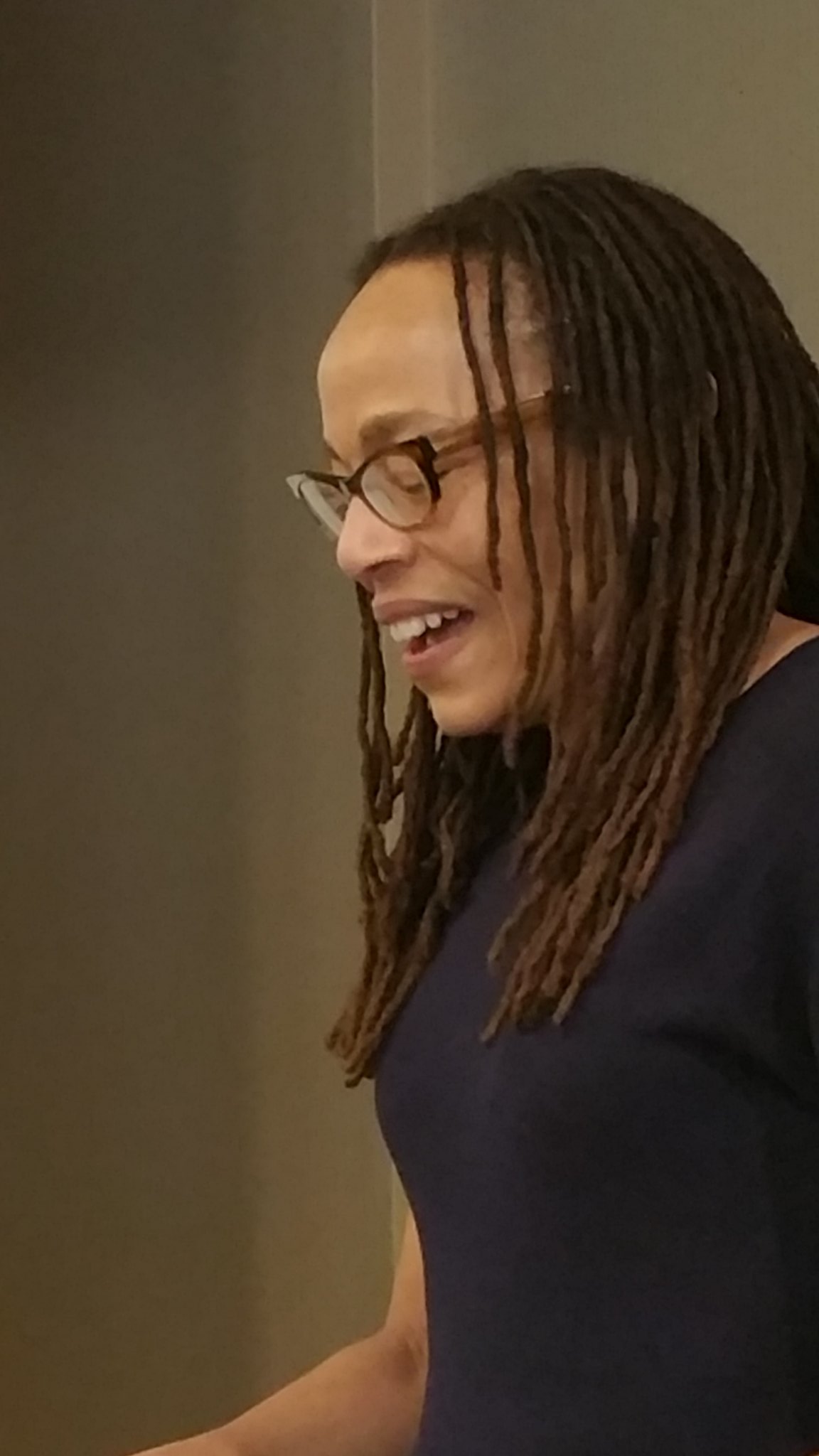10th Anniversary Baby Markets Congress

“We can only assess the justice of baby markets by stripping away the veneer of ‘freedom,’” said Dorothy Roberts at the Baby Markets International Congress, which met April 1-3 in Southern California. The meeting celebrated the 10th anniversary of the Baby Markets Roundtables series founded by Michele Goodwin, Chancellor’s Professor at UC Irvine Law School, author of Baby Markets (2010), and founder of the Center for Biotechnology and Global Health Policy.
For three days, panelists and participants engaged with assisted reproductive technologies (ARTs), reproductive justice, contractual parentage and procreation relationships, genetic testing and selection of embryos, gestational and transnational surrogacy, in vitro fertilization, abortion laws, constitutional rights to procreation and assisted reproduction, LGBT access to adoption and ARTs, selective reduction, and fertility professional negligence.
@DorothyERoberts "baby markets aren't free" keynote address at #BabyMarkets2016 @UCILaw @UCIrvine @Penn pic.twitter.com/7K9AC45Joo— Michele Goodwin (@michelebgoodwin) April 1, 2016
The keynote address by Dorothy Roberts, professor of law and sociology at the University of Pennsylvania and CGS advisory board member, painted a rich picture of the complex systems of oppression that backdrop free trade reproduction. Roberts highlighted the wide-ranging reproductive injustices of abortion bans, neoliberal public healthcare disinvestment in the United States, dependency courts and disruptions of families of color, and centuries of ongoing racism that make it impossible for baby markets to be “liberating” for women of color.
Roberts also reflected on the “new eugenics” that pressures parents to make “the right genetic decisions,” leading to the widespread use of pre-implantation genetic diagnosis to select against disability, and the support of a few enthusiasts to attempt next-generation genetic engineering with CRISPR-Cas9 to “edit” the traits of future children. Roberts concluded that debates on the ethics of commercial assisted reproduction must center the people hurt most by market logics: people of color, disabled persons, transgender and intersex persons, and people acting as surrogates. “We can’t solve social problems with better technology,” she said.
Marcy Darnovsky, executive director of CGS, and Radhika Rao, professor of law at UC Hastings, separately introduced emerging technologies in reproduction that heighten a number of ongoing concerns about eugenics, informed consent, and elite access to what Roberts earlier referred as a “reproductive caste system” of “built” children. These new technologies include egg freezing, uterine transplants, gametogenesis (stem cell-derived artificial gametes), and CRISPR-Cas9 germline gene editing.
The ART Working Group’s Reproductive Justice panel
The ART Working Group, a collaborative effort between CGS and the Pro-Choice Alliance for Responsible Research (PCARR) that grew out of The Tarrytown Meetings, organized a panel introduced by CGS consultant Emily Galpern that focused on reproductive justice insights into assisted reproduction. UC Davis Professor of Law and CGS fellow Lisa Ikemoto discussed her research on egg providers and the “repro-stratification” of eggs based primarily on race. She noted that “currently we use ARTs to reproduce the nuclear family,” instead of collaborative reproduction marked by reciprocity and kinship.
PCARR co-founder Susan Berke Fogel gave an overview of reproductive justice, focusing on the centrality of women of color in the movement, and the shift away from the reproductive rights conversation about “choice” and privacy toward a holistic understanding of “justice” that looks at oppression and intersectionality, and that doesn’t privilege reproductive rights over other rights.
Daisy Deomampo, assistant professor of anthropology at Fordham University, presented research looking at surrogacy and the treatment of intended parents and gestational surrogates in India as a site of racialization that isn’t just “reflective” of oppressive racial hierarchies in the world, but which produces race. She noted that reproductive justice seeks to change structural inequalities, instead of liberating individuals from experiencing them.
Regina Tamés Noriega from the Grupo de Información en Reproducción Elegida (GIRE) in Mexico discussed the recent expansion of transnational surrogacy in Tabasco and Cancún. She described policymakers’ sudden focus on regulating surrogacy despite their lack of interest in regulating other forms of assisted reproduction, potentially because it represents a way to control women’s bodies.
 Reproductive Justice Film Festival
Reproductive Justice Film Festival
The 10th Baby Markets Congress also included a Reproductive Justice Film Festival. Three documentary films were screened during the weekend:
Misconception (forthcoming), dir. Civia Tamarkin, showcases the “collateral damage” and “friendly fire” of the abortion wars, and the political indoctrination of youth into the anti-abortion movement.
 Young Lakota (2012), dirs. Rose Rosenblatt and Marion Lipschutz, follows three youth living on the Pine Ridge reservation of the Oglala Sioux tribe who experience political awakenings around the issue of abortion.
Young Lakota (2012), dirs. Rose Rosenblatt and Marion Lipschutz, follows three youth living on the Pine Ridge reservation of the Oglala Sioux tribe who experience political awakenings around the issue of abortion.
Beautiful Sin (2014), dir. Gabriela Quirós, documents the political battle around embryo personhood and assisted reproduction in Costa Rica. A ban on IVF that passed in 2000 was finally lifted by a presidential decree ruled valid by the Inter-American Court on Human Rights in February 2016.
Thank you!
We learned so much from the fascinating papers, discussions, and research presented by the scholars, policy-makers, civil society advocates, journalists, and activists in attendance. Thanks to Michele Goodwin and all the participants!
About the Baby Markets Organizer and Sponsors
Michele Bratcher Goodwin’s research engages law’s interaction with the body across multiple spheres, encompassing organ transplantation, reproduction, tissue harvesting, sex and marriage trafficking, and international surrogacy, among other topics. Goodwin recently edited The Global Body Market: Altruism’s Limits, published in 2013.
The International Congress was supported by generous contributions from the University of California, Irvine Medical Humanities Initiative, School of Law, and donors: Greg Rose and Pat Wilson, and co-sponsors: Center on Globalization, Law, and Society (GLAS); Department of Criminology, Law and Society; Department of Gender and Sexuality Studies; Program in Public Health; Reproductive Justice Initiative; and School of Social Ecology.
Previously on Biopolitical Times:




